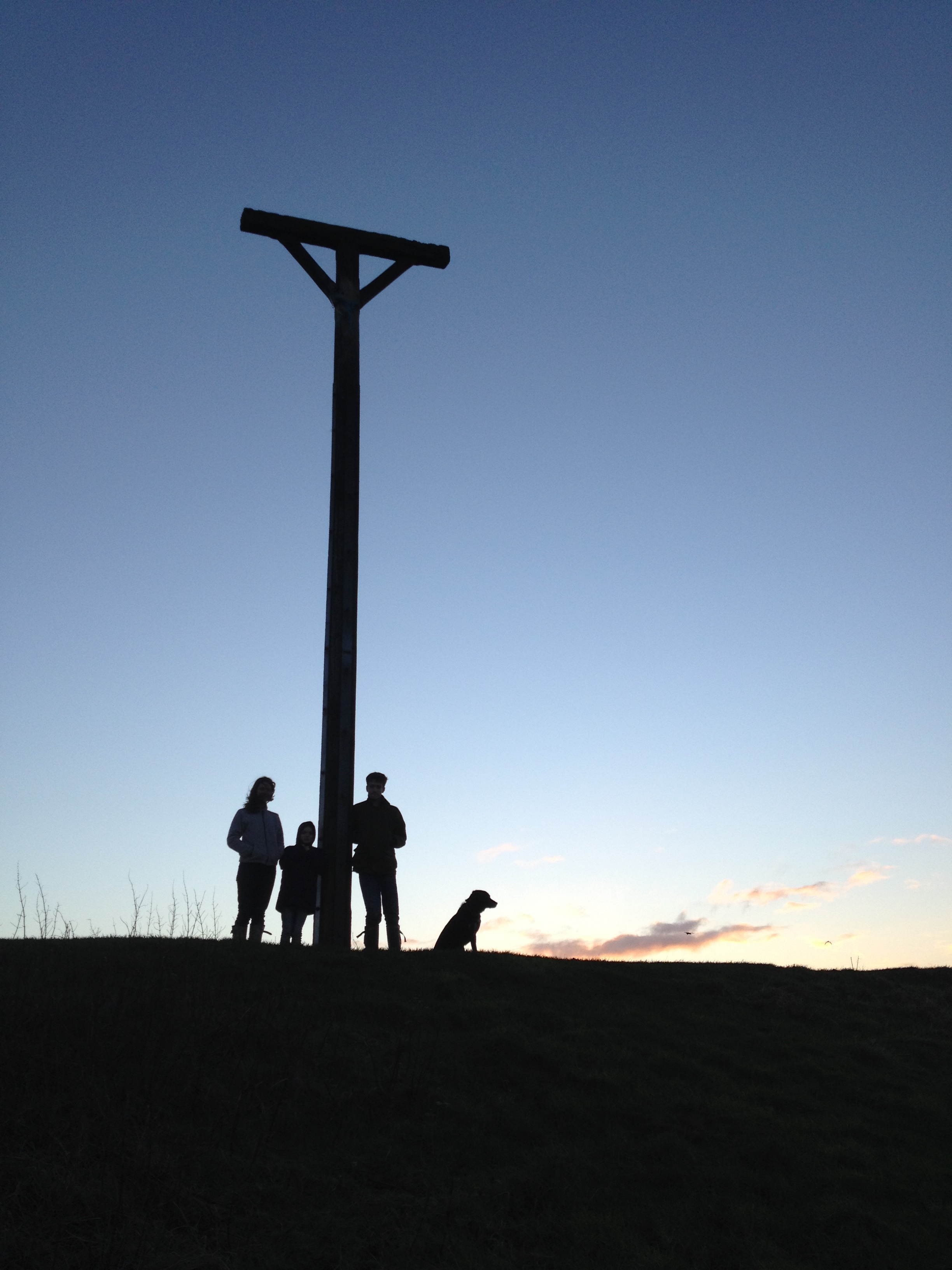Of Love and Stardust.
Later on the hill at night, the children and I make the most of a rare clear night during  the Geminid meteor shower. The children stand silhouetted on the edge of the curve, ditch and drop of the old grass hill fort. The stars brighten by the minute as our eyes adjust. The familiar winter constellation of Orion pitches forward as if he is cartwheeling slowly through the winter night, arms thrown up in the air, his sword-stars weighting him like a plumb line. The dying red star of Betelgeuse, Orion’s right shoulder, pulses and wavers as if it might go out.
the Geminid meteor shower. The children stand silhouetted on the edge of the curve, ditch and drop of the old grass hill fort. The stars brighten by the minute as our eyes adjust. The familiar winter constellation of Orion pitches forward as if he is cartwheeling slowly through the winter night, arms thrown up in the air, his sword-stars weighting him like a plumb line. The dying red star of Betelgeuse, Orion’s right shoulder, pulses and wavers as if it might go out.
We make out other clusters: orange Aldebaran glows in the bull’s eye of Taurus and the smudge of the seven sisters appears brighter in our periphery. We locate Castor and Pollux, the two brightest stars of Gemini, where these meteors fly from.
Twenty minutes in, we see well enough to spot the black paper cut-out of an owl turn on a wing-tip and go down in the grass. The hill seems to swallow him whole. He doesn’t come up again. The chill in the air deepens as the temperature reaches the dew point.
The Geminids are the best, most magical of our meteor showers. Often coloured, bright and slow, there is sometimes enough time to shout, point and for whoever is looking the other way to catch the afterburn of a freefall, pitching into darkness.
The stars wheel and turn. Two let go of the sky, one after the other, in long bluish streaks over the wood below and where home is, on the other side. My son and daughter see others I don’t and there is a characteristic lull. I see one the colour of a candle flame take a slowdive, off the edge of a shelf in the air and wish the children had seen it. A joy shared is a billion light years better, a reflected glory. But the best one is seen by all three of us as it falls out of Orion’s right hand, dropped like a hot coal, to scorch the sky with an orange blaze we can’t blink away for a moment.
The lull is longer this time and the cold sinks into our bones. Somewhere in the night, snipe are calling. They love the long, shallow gullies of the landrover wheeltracks over the grass. Heaven knows what meagre shelter it provides up here. We sweep the torch over them, instead finding a wavering string of fairy lights: mirror flashes from the eyes of a line of grazing sheep. We pause for a moment on the ramparts, high above the villages and towns below. How privileged we feel, how lucky and how free. Made of love and stardust, the world to us this moment, as fleeting and as beautiful.
Leave a Reply to nicolawritingCancel reply